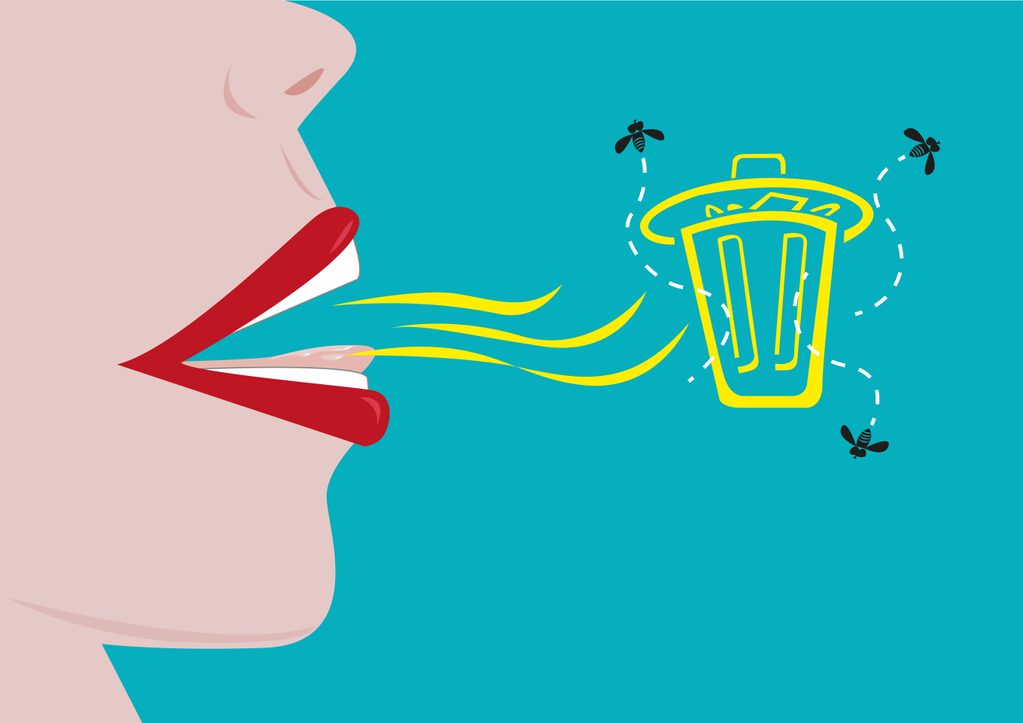Home Remedies for Bad Breath Everyone Should Know

Is bad breath bogging you down? Here are some quick home remedies that will leave you feeling confident in no time.
Our editors and experts handpick every product we feature. We may earn a commission from your purchases.
If odour-causing bacteria seem to be fond of your gums, tongue and teeth, you’ll want to adopt some daily habits to inhibit these inhabitants. Special rinses, attention to toothpaste and faithful brushing and flossing can begin making bad breath good.
Emergency measures for bad breath
Water: Dry mouth is a haven for the bacteria that cause bad breath. So find a tap, and swish the water around in your mouth. Water will temporarily dislodge bacteria and make your breath a bit more palatable.
Parsley: At the end of your power lunch or romantic dinner, munch the sprig of parsley that’s left on your plate. Parsley is rich in chlorophyll, a known breath deodorizer with germ-fighting qualities.
Citrus: If you can get your hands on an orange, peel and eat it. The citric acid it contains will stimulate your salivary glands and encourage the flow of breath-freshening saliva. If there are no oranges in sight, eat whatever is available, except known breath-foulers like garlic, onions or stinky cheese. Eating encourages the flow of saliva, which helps remove the unpleasant, odour-causing material on the back of your tongue.
Tongue scraper: Vigorously scrape your tongue over your teeth. Your tongue can become coated with bacteria that ferment proteins, producing gases that smell bad. Scraping your tongue can dislodge these bacteria so you can rinse them away. If you have a metal or plastic spoon, use it as a tongue scraper. To scrape safely, place the spoon on the back of your tongue and drag it forward. Repeat four or five times. Scrape the sides of the tongue as well, with the same back-to-front motion. Don’t push the spoon too far back, however; you may activate your gag reflex.
Raid the spice shelf
Cloves: This spice is rich in eugenol, a potent antibacterial. Simply pop one into your mouth and dent it with your teeth. The pungent aromatic oil may burn slightly, so keep that spicy nub moving. Continue to bite until the essence permeates your mouth, then spit it out. Don’t use clove oil or powdered cloves; they’re too strong and can cause burns.
Fennel, dill, cardamom, or anise seeds: Chew on them—it can kill the bacteria that grow on the tongue and help mask the odour of halitosis.
Cinnamon: Suck on a stick of cinnamon. Like cloves, cinnamon is effective as an antiseptic.
Choose your breath fresheners
Therapeutic oral rinse: The most obvious brand-name products advertised as breath-fresheners are rarely, if ever, effective in the long run. But with a therapeutic oral rinse, you can rid yourself of the compounds that are responsible for breath odour. These products are available both at your local drugstore and over the Internet.
Toothpaste with tea-tree oil: Use a toothpaste that contains tea-tree oil, a natural disinfectant. If you can’t find it in the pharmacy, look for it in health-food stores.
Home remedies to prevent bad breath
Use an oral irrigator: It’s a handheld device that rapidly pulses a small jet of water into your mouth, to flush out the bad bacteria, which can go deeper than a brush or floss string can reach. Try Smile Brilliant’s cariPRO Cordless Water Flosser.
Carry a toothbrush: Brush immediately after every meal. With prompt brushing you thwart the development of plaque, the soft, sticky film that coats the teeth and gums.
Store your toothbrush properly: To keep your toothbrush free of stink-triggering bacteria, store it, head down, in a lidded plastic tumbler of hydrogen peroxide. Rinse the brush well before you use it.
Soak dentures in an antiseptic: If you wear dentures, it’s possible that they are absorbing the bad odours in your mouth. Always soak them overnight in an antiseptic solution, unless your dentist has advised you otherwise.
Don’t skip meals: When you don’t eat for a long period of time, your mouth can get very dry. It becomes a perfect breeding ground for bacteria.
Avoid things that sour your breath: These include cigarettes, alcohol, onions, garlic and especially strong cheeses like Camembert, Roquefort, and blue cheese. In situations where sweet breath is a must, use the commonsense approach—just say no.
Try a probiotic: Create a harmonious balance of healthy bacteria in your mouth with the help of a probiotic supplement, such as Smile Brilliant’s Dental Probiotics.
Ask your doctor: Medication could be fouling the air you expel. Any drug that dries out your mouth, thereby depriving it of saliva, is suspect. These include over-the-counter antihistamines, decongestants, diet pills, and prescription medications for depression and high blood pressure.
Next: 6 Myths About Mouthwash That Might Be Hurting Your Health




